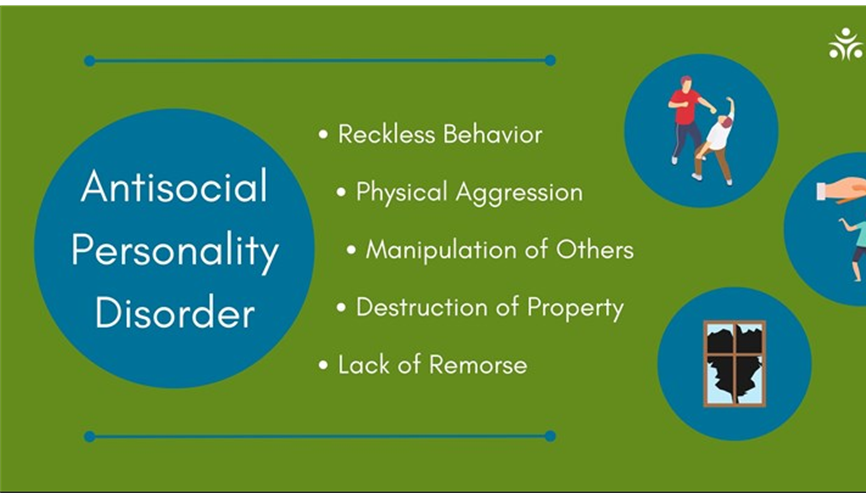The patient admitted with antisocial disorder will display which symptom(s)?
Concern for others
Actively engaged in all unit activities
Mindful of following al of the unit rules
Manipulative
The Correct Answer is D
A. Concern for others: Individuals with antisocial personality disorder typically lack genuine concern for others and may exploit or manipulate them for personal gain.
B. Actively engaged in all unit activities: While engagement in activities can vary, the key feature of antisocial personality disorder is not a high level of engagement but rather a disregard for rules and the rights of others.
C. Mindful of following all of the unit rules: Individuals with antisocial personality disorder often have a history of rule-breaking and may not be consistently mindful of following societal or institutional rules. They may engage in behaviors that violate rules or laws.
D. Manipulative: This is the correct answer. Antisocial personality disorder is characterized by manipulative behaviors, where individuals exploit others for personal gain or pleasure. Manipulation is a key feature of this disorder.

Nursing Test Bank
Naxlex Comprehensive Predictor Exams
Related Questions
Correct Answer is D
Explanation
A. Concern for others: Individuals with antisocial personality disorder typically lack genuine concern for others and may exploit or manipulate them for personal gain.
B. Actively engaged in all unit activities: While engagement in activities can vary, the key feature of antisocial personality disorder is not a high level of engagement but rather a disregard for rules and the rights of others.
C. Mindful of following all of the unit rules: Individuals with antisocial personality disorder often have a history of rule-breaking and may not be consistently mindful of following societal or institutional rules. They may engage in behaviors that violate rules or laws.
D. Manipulative: This is the correct answer. Antisocial personality disorder is characterized by manipulative behaviors, where individuals exploit others for personal gain or pleasure. Manipulation is a key feature of this disorder.

Correct Answer is B
Explanation
A. Generalized anxiety disorder and a nursing diagnosis of fear: Generalized anxiety disorder typically involves chronic, excessive worrying and anxiety that is not limited to specific situations or triggers. The sudden and intense symptoms described in the scenario, such as lightheadedness, tremulousness, diaphoresis, tachycardia, and dyspnea, are more indicative of a panic attack rather than generalized anxiety. The nursing diagnosis of fear may not fully capture the acute and intense nature of panic symptoms.
B. Panic disorder and a nursing diagnosis of panic anxiety: This is the correct answer. Panic disorder is characterized by recurrent, unexpected panic attacks, which align with the sudden onset of symptoms described in the scenario. The nursing diagnosis of panic anxiety is appropriate as it addresses the acute distress associated with panic attacks.
C. Pain disorder and a nursing diagnosis of altered role performance: There is no indication of pain being the primary issue in this scenario. The symptoms are more indicative of a panic attack rather than a pain disorder. Additionally, altered role performance is not a priority nursing diagnosis when addressing the acute symptoms of a panic attack.
D. Altered sensory perception and a nursing diagnosis of panic disorder: Altered sensory perception is not the primary issue in this scenario, and it does not specifically address the sudden and intense symptoms described. The focus should be on the panic symptoms and the associated distress, leading to the nursing diagnosis of panic anxiety.
Whether you are a student looking to ace your exams or a practicing nurse seeking to enhance your expertise , our nursing education contents will empower you with the confidence and competence to make a difference in the lives of patients and become a respected leader in the healthcare field.
Visit Naxlex, invest in your future and unlock endless possibilities with our unparalleled nursing education contents today
Report Wrong Answer on the Current Question
Do you disagree with the answer? If yes, what is your expected answer? Explain.
Kindly be descriptive with the issue you are facing.
